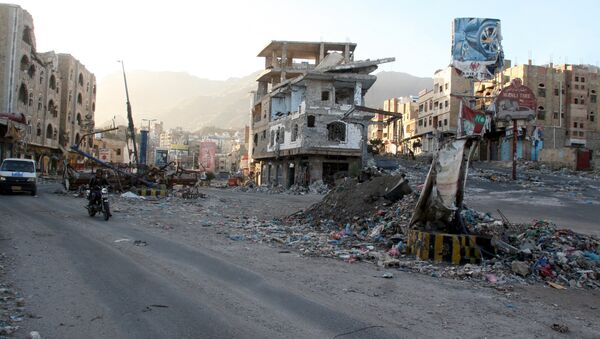According to Benchemsi, the prospects for an end to the hostilities in Yemen are poor because the ceasefire was agreed upon by the Houthis and the Saudi-led coalition, but did not take into account other players in the conflict, including the Islah Party and elements of al Qaeda.
"If these forces are not at the table, we cannot really expect them to respect the decision they will not be part of," he said.
Ceasefires tend to have rocky beginnings, and, in this case, it is more a matter of "who's participating in the conversation," as opposed to a matter of time, Benchemsi believes. The upcoming April 18 peace talks in Kuwait do not seem promising for similar reasons.
Nonetheless, some form of agreement could be reached, Benchemsi suggested, if the Saudi-led coalition feels that it has achieved its objectives, and stops the aerial bombing. But, by giving the Houthis political legitimacy, the deal could encourage other opponents to also stand up to the Saudis, stirring up more trouble.
Not all sides will be represented at the peace talks in Kuwait, and consequently it is difficult to expect a positive outcome, Benchemsi warned.
"So far the only parties that will be represented at Kuwait are the Saudi-led coalition and the Houthi forces," he said. "However each one of those parties is backed by different forces on the ground that don't take orders from them. So they might not want to respect whatever agreement they reach."
"As long as all the parties are not represented in Kuwait — and that's a tricky one, because some parties are quite complicated to represent, speaking of al Qaeda, for example — the prospect for a sustained peace will be shaky at best."
The UN-brokered ceasefire will expire at 12 pm local time, following peace negotiations in Kuwait.



